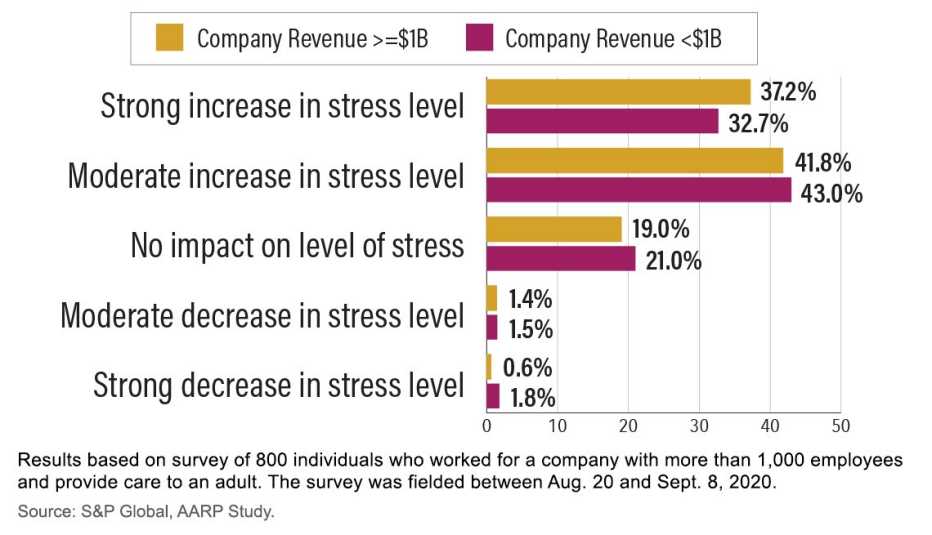AARP Hearing Center
Seven months into the global pandemic and it appears the coronavirus is taking yet another harsh, unexpected toll: Women are abandoning their careers and leaving corporate America.
The nonstop juggling of work commitments and family needs in the face of day care, school, nursing home and office closures is causing many women to opt out of the workforce. In September alone, 865,000 women age 20 and older left the workforce, compared with 216,000 men, according to a National Women's Law Center analysis of Labor Department data.
New research from an AARP/S&P Global survey of 1,573 individuals examining the relationship between family-friendly benefits and female representation in both the workforce and senior management found that 58 percent of caregivers report spending increased time caring for adults since the pandemic began; 61 percent of adults have increased their child care responsibilities. While those numbers are not surprising, the impact may have a long-term effect.


"Stress has gone up,” said Robert Stephen, AARP vice president of caregiving and health, noting that 30 percent of those surveyed said they had a strong increase in stress, while 43 percent admit to a moderate increase in stress. “Almost three-quarters of the caregivers are saying they're more stressed. That really, really points to the need for more self-care."
"As much as I wish it weren't the case, I still believe that women serve double duty,” said Pamela Sutton-Wallace, senior vice president and regional chief operating officer at New York-Presbyterian, one of the largest hospitals in the U.S. — a role she began in January 2020. “In my generation, it's still the case that women are doing a disproportionate share of the housework and disproportionate share of the child caregiving and parental support."
Sutton-Wallace has two college-age daughters and a mother who lives with her.








































































